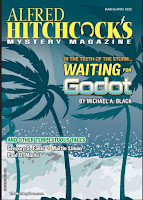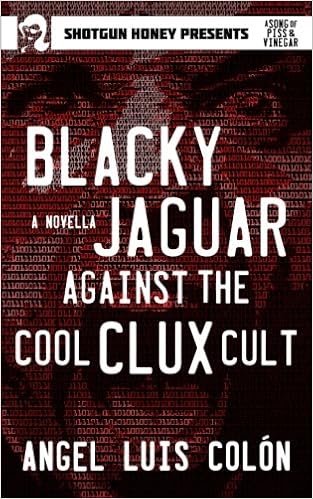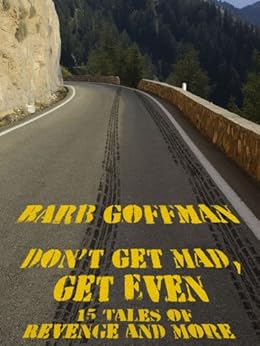Three years ago this web site and blog went live with John Floyd’s column “Plots and Plans”. Readers who have been with SleuthSayers from the beginning know it was spearheaded by former members of Criminal Brief,
an influential web log devoted to mystery short fiction. CB, as it was
affectionately known, had run its course. In 4½ years, it had covered a
broad range of topics and insight in the realm of crime-writing. In
the same month that Criminal Brief closed shop, September 2011, Leigh,
Rob, John, and Deborah - as well as Janice Law, who had just joined CB
seven months earlier - launched SleuthSayers. And what a great three
years it has been.
Today we celebrate the third
anniversary by bringing back all of the regular weekly columnists from
Criminal Brief to provide brief updates of what they've done and where
they've been during these three years. Let me say I’m glad to be back
among old friends once again. So now I welcome to the stage Deborah,
John, Melodie, Janice, Rob, Leigh, and Angela. It also seems fitting -
we couldn't have it any other way - that Criminal Brief founder James
Lincoln Warren will have the final word.
Thank you. And Happy SleuthSayers Anniversary!
— Steve Steinbock
Deborah Elliott-Upton. Criminal Brief
arrived at a pivotal time of my life. I had finished teaching a series
of writer’s workshops and longed for a new challenge. A weekly blog fit
perfectly. I enjoyed the camaraderie of my fellow CB writers, some were
new acquaintances, amid some I’d known for a while. This allowed enough
familiarity to be comfortable, enough new to make me strive to do my
best. I think we learned from each other as much as we shared our
knowledge and experiences with the readership.
My favorite columns to write for
Criminal Brief
during the four years were one on Nick Carter (great time researching
that one!) and two that complimented the other: “Good Bad Guys” and “Bad
Good Guys.” Of course, I have fond memories of my very first experience
with CB with “Take a Seat” – my entrance to the blogging arena.
When James decided
Criminal Brief
should end, many of us immediately signed on as SleuthSayers. We met
some new writers as columnists and also reached many new readers, too.
Personally, I was most grateful for those that traveled with us from old
to new blogs.
Taking a sabbatical from
SleuthSayers,
I went back to school, majoring in psychology. After all these years, I
am still curious about what makes people tick and why they do or say or
act like they do. These differences make life much more interesting. I
plan to never stop learning and I can’t stop writing; both are
addictions. I am so happy to be among people who feel as I do.
John M. Floyd.
There’s nothing special going on in my world, which is exactly the way I
like it. I still teach fiction-writing classes in the Continuing
Education department of a local college, I still carry out my wife’s
every order (well, almost every order), and I still read or watch all
the mystery/suspense books and movies I can get into my hands or my
Netflix queue. In the summers I mow our yard once a week whether it
needs it or not, and in the winters I spend a lot of time wishing we
lived even further south. Since retiring, most of my traveling has been
to visit our children or my mother, or to attend the occasional (but not
often enough) Bouchercon.
On the writing/publishing
front, I have two novels currently out with an agent who (bless his
soul) remains excited and encouraging about them both, but--as
always--most of my time is spent writing short stories. Over the past
year I've been fortunate enough to place stories at
AHMM, The Strand, Woman's World, and
The Saturday Evening Post,
and unfortunate enough to add a lot of entries to my stunningly long
list of rejections. At the moment I have new stories upcoming at both
AHMM and EQMM, and my fifth book will be released next month. This one
is another collection of shorts, appropriately titled
Fifty Mysteries.
Melodie Johnson Howe. I miss blogging and my blogging buds. But I have been busy, busy. My new Diana Poole novel,
City of Mirrors,
has been received with raves and I have a contract for the second in
the series. I’m writing away and pop my head up to go to Bouchercon, and
speaking engagements.
City of Mirrors has come out in the UK in e-book, so you Brits out there take a look at it.
I’m
looking forward to the Bewitched Fanfare later this month. They will be
showing ‘Generation Zap’, the episode I starred in. I will be
interviewed afterwards. Who knew there was a Bewitched Fanfare?! It’s in
L.A. at the Sportsmen’s Lodge. This should be fun. My long ago acting
career is alive!
We have a new puppy called Satchmo in
honor of Louis Armstrong. The attendant at the vet thought Satchmo was
named after an action hero. I told her he was. Which reminds me of a
black standard poodle we had called Madame Bovary. And people kept
calling her Ovary. But I digress.
We have a great
granddaughter, Addison, who just turned one. Beyond adorable. Bones and I
will be married for 50 years in March. What’s in a number? Many years
of living, adjusting, talking, laughing, arguing, passion, and always
love and respect.
I must leave now to get my roots blonded. I find it’s good for the soul and creativity.
Janice Law. Since
Criminal Brief shut down, I spent a year writing bi-weekly blogs for
Sleuthsayers and
discovered that I do not have an endless supply of clever ideas and
interesting activities. The SS gang has been kind about allowing me an
occasional space.
I have published the three volumes of
my trilogy featuring Francis Bacon, painter, as the detective, which is
not as impressive as it might sound given that I sent
The Fires of London
to my then agent in 2006 and did not find a publisher until Otto
Penzler accepted it for mysteriouspress.com in 2011. Because I had
ignored the hint that the publishing world was uninterested in both me
and Francis, I already had the second novel,
Prisoner of the Riviera, written by this time. The publishing mills grind exceedingly slowly in my case.
I have also published a volume of short stories – don’t ask me how long
Blood in the Water looked
for a publisher – and thanks to a suggestion by Rob Lopresti, there
have been numerous outings for Madame Selina and her assistant, Nip, in
AHMM. I think it is about time Nip acquired a legitimate trade or
profession and Madame retired to Newport or Saratoga.
Lately,
I have been trying to market some novels close to my heart but
apparently not to the demands of the market. As a result, I’m spending a
lot of time painting, with quite happy results.
Robert Lopresti. What have I done in the last three years? Gotten
much more than three years older, I think. Sold ten stories, more or less. Won two awards.
The
future looks exciting. My first collection of short stories will be
self-published quite soon. A new novel will be out next year. (Can't
tell you about it yet, but I wrote a lot about it in the first year of
SleuthSayers.) And, speaking of blogs, I have a new one starting next
year. No, I won't be leaving SS, but I hope a lot of you will enjoy it.
Read all about it here on January 7. In fact, I hope all you good folks
will keep reading what we turn out here. You make it all worthwhile.
Leigh Lundin. In comparison with my colleagues, I submit very little but work a lot. I know, I know; I actually have to send things in!
The
problem with ADD is that too many things interest me. Not long ago, I
helped edit math textbooks and wrote a few chapters for one. More
recently I’ve been editing novels of new authors who’ve turned their
backs on the self-pub short-cuts and want to present at a professional
level.
A couple of stories are wending their way to
editors’ desks and I’ve been working on a couple of novel-length
projects. Well, one's a novel and one isn't, but more on that later.
In
the meantime, SleuthSayers keeps me occupied, albeit with considerable
help from my cohorts, especially Rob. And did I mention I spent the
better part of a year in South Africa? And would love to again?
Steve Steinbock. For a fuller disclosure of what I've been up to since the days of Criminal Brief, take a look at my recent
guest post
here on Sleuthsayers. The short version: Last year I attended a large
number of mystery conventions and events - Bouchercon, Bloody Words, The
Edgars, and Malice Domestic - as well as, on a lark, a
Dark Shadows gathering in Tarrytown, New York. I continue to write my regular
Jury Box colum in
Ellery Queen's Mystery Magazine.
On
the personal side, my youngest child just began his senior year of high
school. After he graduates, I plan to relocate to Washington State,
just a few hours from Sleuthsayer and former Criminal Briefer
Robert Lopresti. I spent most of this past summer in the desert region of Eastern
Washington as well as in Seattle. I also took my son on a college
exploratory trip to California, where we were able to catch up with old
friends
James Lincoln Warren,
Melodie Johnson Howe, and
Murder She Wrote and
Columbo creator
William Link.
Angela Zeman.
Hello! It’s been forever since I’ve checked in on SleuthSayers, thanks,
Leigh for the invitation. When browsing your blogs, I detected that
nobody here has been idle. (Elementary, heh heh.)
Life is good. I'm still attached to the amazing Barry Zeman, who Leigh thinks would make an ideal Mickey Spillane.
Since appearing in the Mystery Writers of America anthology,
The Prosecution Rests,
I've continued to write and developed a high-end web site. Most of you
know that for several years, disk/back issues have disrupted my writing
and my life. But tah-dah, it’s over. Well, I’ve had to stop leaping tall
buildings. But I’m content with short hops. So, friends, to all
directly concerned with my production (you know who you are) whatever I
promised you… it’s going to arrive late. But I’m on it, no worries.
Oh yes, I'm 30,000 words into a thriller with a touch of horror. I'm so excited to be writing again!
James Lincoln Warren.
By 2006, I had tried at least twice (two-and-a-half times, if you count
my short-lived Diction City Police Department attempt) to establish a
presence on the internet as an author with his own blog. Can you say
crash and burn?
Running a personal web log takes a hell of a lot of work and a monstrous
amount of discipline—that, or a pathological graphomania, and I’m a
slow writer. Frankly, it isn’t possible to keep such a website
completely current, and since new posts were generally erratic, it was
also hard to keep it fresh. A blog really needs to be updated every day.
Several of my novelist friends had solved the necessary-update-every-day problem by joining
rotating blogs, i.e., they shared the same blog, but each author posted on a regular schedule once a week. So I thought,
why not a rotating blog for short story writers?
I
pitched the idea to Rob Lopresti, who was enthusiastic, and after both
of us had worked in putting together a regular list of contributors,
Criminal Brief was
launched on May 7, 2007. It was a resounding success.
The “Mystery Short Story Web Log Project” lasted for four and a half years. It was a very different website from
SleuthSayers
in a couple of ways. First, it had an extremely specific goal, to wit,
promoting the crime short story, although other peripherally related
topics were tolerated. Secondly, I was the editor and ultimate authority
regarding what could be posted. (This latter condition caused some
friction now and again.)
But toward the end, its
content had gotten so broad that it was no longer even remotely sticking
to the topic. Since it had pretty much become a non-paying full-time
job for me, this made me unhappy. I was working very hard on something I
did not really have a passion for.
Was
CB still relevant to its primary purpose? The answer was clearly no. But then I realized that
CB
had actually accomplished its purpose. I wasn’t willing to let what had
been so lovingly been crafted turn into just another author blog, not
that I have any objection to such blogs, but the reason Rob and I had
founded
CB in the first place was because we wanted something unique.
Regretfully, I decided to
shut it down. That pretty much made everybody unhappy.
So
I suggested to the others that if they wanted to continue to write
posts, that they establish a new blog among themselves with a broader
mandate. The indefatigable Leigh Lundin picked up the gauntlet, and
three of the seven authors from
CB joined him, which I thought was absolutely grand, and the
SleuthSayers shortly thereafter began to pronounce their auguries. Look at them now!
SleuthSayers is a much bigger project than
CB ever was. From the short story acorn has grown a mighty oak of crime fiction contributors. Here’s
Criminal Brief’s
swan song.
That will tell you what I think we achieved, and explain my pride in
the project. One thing at the time I didn’t suspect was what would
happen to that acorn, though—I only left it on the ground. The
SleuthSayers
themselves are the ones who nurtured, pruned, and watered it into what
it is now, and they’re the ones who should be justifiably proud of their
accomplishments.









































